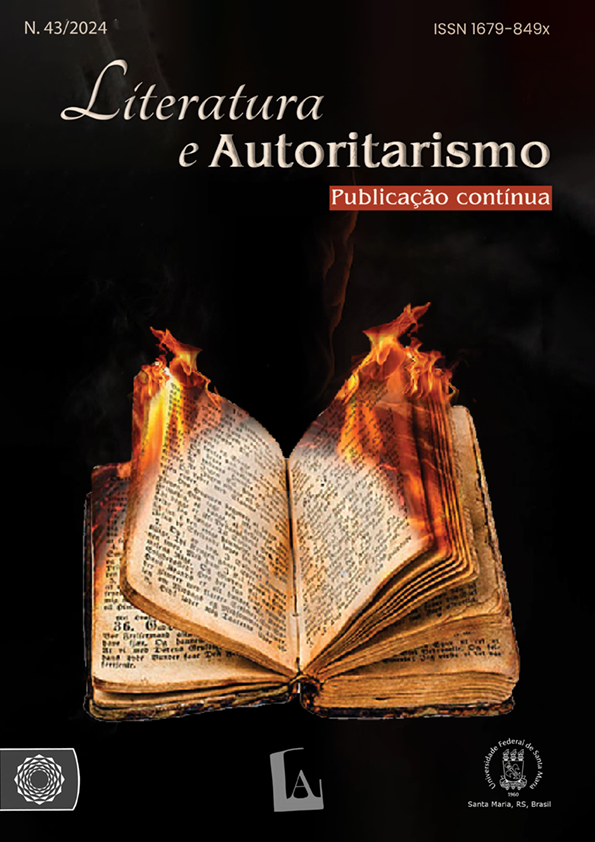The materialization of human vulnerability through imagesITY THROUGH IMAGES
DOI:
https://doi.org/10.5902/1679849X74001Keywords:
Photography, Photojournalism, Social Complaint, Brazilian Holocaust, Anti-asylum MovementAbstract
This article aims to analyze how the production and dissemination of images that expose violence and human degradation can be used as a social denunciation and contribute to transforming the reality of socially excluded people. The research is based on the book-report The Brazilian Holocaust, published in 2015, by the journalist Daniela Arbex, which presents an investigative report on the psychiatric hospital in the city of Barbacena, state of Minas Gerais, known as The Colônia, that, after almost eighty years using inhuman treatments, it underwent a reform in psychiatry due to an anti-asylum movement encouraged through the exposure of images in the media. The rescue of the psychiatric hospital's history is in dialogue with theories about the concept and ethical practice of photography, such as: Cartier-Bresson, and the decisive moment; Sontag (2003), and photography as a denunciation; Kossoy (2001), and the eternalization of time through photography.
Downloads
References
ARBEX, Daniela. Holocausto Brasileiro. São Paulo: Geração, 2013. Formato digital. Disponível em: https://lelivros.love/book/download-holocausto-brasileiro-daniela-arbex-em-epub-mobi-e-pdf/. Acesso em 27 de jul. 2021.
BAUMAN, Zygmunt. Modernidade e Holocausto. Rio de Janeiro: Jorge Zahar Editor, 2012.
BRIZUELA, Natalia. Depois da fotografia: uma literatura fora de si / Natalia Brizuela; tradução Carlos Nougué. - 1. ed. - Rio de Janeiro: Rocco Digital, 2014.
CARTIER-BRESSON, Henri. O momento decisivo. O imaginário segundo a natureza. Trad. Renato Aguiar. São Paulo: Gustavo Gili, 2015.
EM NOME DA RAZÃO. Direção de Helvécio Ratton, Produção: Tarcísio Vidigal, Fotografia: Dileny Campos, Ass. Fotografia: Maria Amélia Palhares, Montagem: José Tavares de Barros, Ass. Montagem: João Fernando Motta, Som: Evandro Lemos, Texto: Antônio Simone e Helvécio Ratton, Narração: Roberto Marcondes. Produção de Helvécio Ratton. Disponível em: https://www.youtube.com/watch?v=cvjyjwI4G9c. Acesso em: 27 de jul. 2021.
HOLOCAUSTO Brasileiro. Direção de Daniela Arbex, Armando Mendz. Produção de Roberto Rios, Maria Ângela de Jesus, Paula Belchior, Patrícia Carvalho, Alessandro Arbex e Daniela Arbex. Roteiro: Daniela Arbex. Barbacena. Produção: HBO, 2016. (90 min.). Baseado no Livro Holocausto Brasileiro de Daniela Arbex. Disponível em: https://www.youtube.com/watch?v=y6yxGzlXRVg. Acesso em: 27 de jul. 2020.
KOSSOY, Boris. Fotografia & História / Boris Kossoy. – 2. Ed. rev. – São Paulo: Ateliê Editorial, 2001;
KOSSOY, Boris. Realidade e ficções na trama fotográfica. 3. ed. rev. São Paulo: Ateliê Editorial, 2002.
MIRANDA, L. L. A cultura da Imagem e uma nova proibição subjetiva. Psicologia Clínica. Rio de Janeiro, v. 19, n. 1, p 25-39. Out/dez. 2007.
MONTEIRO, Charles. História e Fotojornalismo: reflexões sobre o conceito e a pesquisa na área. Revista Tempo e Argumento, Florianópolis, v. 8, n. 17, p. 64 ‐ 89. Jan. /abr. 2016.
SONTAG, Susan. Diante da dor dos outros. São Paulo: Companhia das Letras, 2003.
SONTAG, Susan. Sobre fotografia. Trad. Rubens Figueiredo. São Paulo: Companhia das Letras, 2004.
Downloads
Published
How to Cite
Issue
Section
License
Copyright (c) 2024 Literatura e Autoritarismo

This work is licensed under a Creative Commons Attribution-NonCommercial-ShareAlike 4.0 International License.
DECLARAÇÃO DE ORIGINALIDADE E EXCLUSIVIDADE E CESSÃO DE DIREITOS AUTORAIS
Declaro que o presente artigo é original e não foi submetido à publicação em qualquer outro periódico nacional ou internacional, quer seja em parte ou na íntegra. Declaro, ainda, que após publicado pela Literatura e Autoritarismo, ele jamais será submetido a outro periódico. Também tenho ciência que a submissão dos originais à Literatura e Autoritarismo implica transferência dos direitos autorais da publicação digital. A não observância desse compromisso submeterá o infrator a sanções e penas previstas na Lei de Proteção de Direitos Autorais (nº 9610, de 19/02/98).






